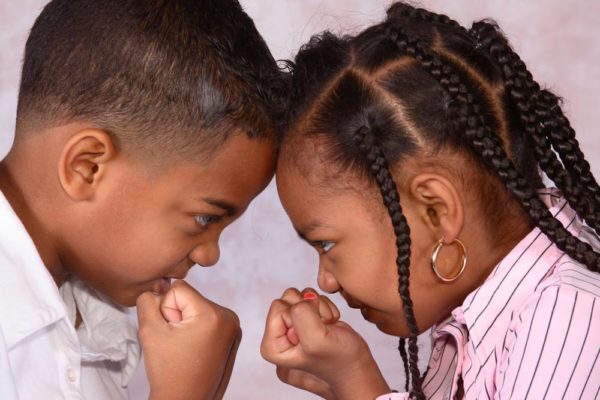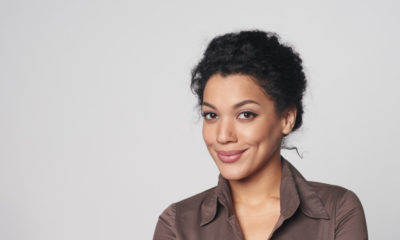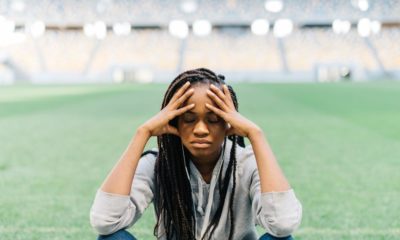Features
Diretnan Bot: Equity & Culture – Misconceptions of Gender Equality in Nigeria
 The rejection of the Gender and Equal Opportunity Bill by the Nigerian Senate in March 2016 has made the gender equality debate more visible in the Nigerian public domain. Debates on blogs, Twitter and Facebook have focused on what gender equality means, or what it seeks to achieve.
The rejection of the Gender and Equal Opportunity Bill by the Nigerian Senate in March 2016 has made the gender equality debate more visible in the Nigerian public domain. Debates on blogs, Twitter and Facebook have focused on what gender equality means, or what it seeks to achieve.
Many individuals tend to perceive ‘gender equality’ with disdain, often replacing the phrase ‘gender equality’ with already unpopular notions of feminism or feminist activities. As a result, gender equality is labelled, and deprioritised as a ‘first-world problem’, an ‘un-African’ ambition, or a ‘non-survival’ right. This article discusses such misconceptions on gender equality with the hope that both women and men come to understand how our history as Nigerians, and indeed Africans, is reflective of gender liberation and empowerment.
Gender equality means that both men and women are given equal rights, responsibilities, and opportunities. It, ensures that both men and women have equal access to societal economic, political and social resources. On the contrary, it is widely believed in Nigeria that gender equality goes against African culture, which historically designates different roles for men and women. Hence, boys grow up to hunt, while the girls would stay at home to perfect their cooking skills. Accordingly, when it was time to get married, the man would grow into a husband that fits society’s description of a husband and the same applied to women. This shows how women were always oriented toward domestic roles as opposed to positions in the public domain.
I believe, however, that such definitions of African culture do not consider the position occupied by women before the 1800s, where notable female warriors, such as Queen Amina of Zazzau conquered many areas between Zazzau and the Niger and Benue rivers absorbing the Nupe and Kwararafa states.
Women, in the Southern part of Nigeria, are believed to have dominated socio-economic positions and held significant political roles in areas of palace administration. Therefore, the belief that gender equality goes against ‘African culture’ is a post-1800s mentality, mostly defined by non-ethnic religion or post-colonialism.
This mentality, however, shows a lack of understanding of what it means to be ‘truly African’, as gender rights, synonymous or reflective of present-day socio-economic equality, freedom of movement and economic activity, and so on were enjoyed by African women in the pre-1800s. This means that equal access to political and economic resources is the birth right of African women who have come from a lineage of formidable women.
Further, in a bid to be ‘modest’, and possibly not to ‘totally disrupt’ the traditional expectations of womanhood, some Nigerian women tend to believe that women should fight for ‘equity’ (fairness) and not ‘equality’. In this regard, they understand ‘equity’ as a ‘less radical’ approach to women’s empowerment. This belief is probably what influenced the clause on affirmative action in the Gender and Equal Opportunity Bill which seeks a minimum of 35% and not 50% of all offices or positions to be reserved for women both in the public and political spheres. However, women fail to realise that ‘equity’ (fairness) cannot be achieved where women’s equality is non-existent. Hence, one can only decide that a gender category (e.g. women) is worthy of respect, to be treated fairly, based on accepting that they are ‘equal’ human beings.
The idea that gender equality distorts the ‘natural order of things’ is a common rhetoric in Nigeria. In this instance, gender equality is perceived literally as seeking to achieve some form of ‘sameness’ in the area of biological functions. However, while gender equality takes into cognisance biological physiological differences in both men and women, it argues that such (physiological) biological differences should not be used to limit women’s participation in the public domain. After all, gendered scientific research has shown the almost non-existent psychological differences between men and women. This means that the persistent idea that there is a fixed biological basis for social differences is because such beliefs only enable the status quo and appear fair, natural and inevitable.
Finally, natural factors quoted in relation to gender equality also draw on religion. In this regard, gender equality is portrayed as an ambition that not only challenges men, but God. Being a Christian, I can probably only speak for the religion I practice.
My belief is that the love practiced in the faith is such that desires to see each individual flourish by attaining their survival right which is what gender equality seeks. Hence, one that desires for girls to be educated, for women to participate and contribute fully in the political realm as well as be employed equally with men. People often argue about ‘submission’ and ‘headship’ but my interpretation of headship and submission is from the perspective of love and kindness.
Being the ‘head’ doesn’t imply a system of control. It means to care and love the other person so much as to see them attain their full potential as well as to express their human individuality. Hence, where the man leads and guides, it is to show example by taking the initiative to show the value of sacrifice. Where the man takes this initiative of sacrifice, it becomes easy for the woman to love and honour him. Being ‘submissive’ in this regard has less to do with being the designated cook, house cleaner or predominant carer of the children.
Unless men and women come to see themselves as equal partners in mental and physical abilities within marriage, gender equality in the public domain will never be attained. Children will be born and raised with the perception that women are lesser versions of men and should not be given equal opportunities to succeed in the society. Where celebrities like Tiwa Savage are quick to say women can conquer the world without gender equality, she needs to be aware that while the odds may have worked in her favour, that may not be the case for millions of women who battle against harsh public systems and institutions that have been designed not to favour them. The perception that we are fine without gender equality if false!
Our survival, economic independence, and democratic participation are hinged on attaining equal rights. For instance, no matter how much we apply for jobs, our chances of getting employed will always be limited. This establishes our economic backwardness, increases our dependence and lack of freedom. These issues that affect our livelihood lead to psychological frustrations that have implications for our survival. This means that unless we come to the realisation that is okay for the social arrangements of gender to change, our future as Nigerian women, as well as that of our girls becomes hopeless.
Photo Credit: Patricia Marks | Dreamstime





















